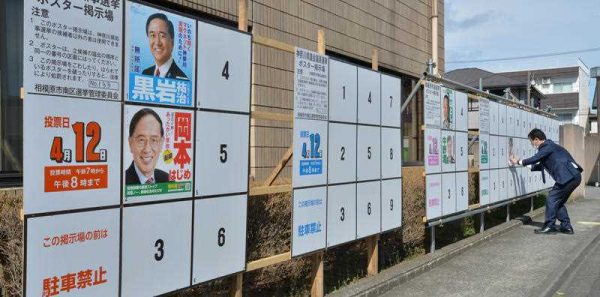On 12 and 26 April 2015, around 1000 elections in total will be held to select local government heads and assembly members as part of the so-called ‘unified local elections held every four years’.
Legislation has just been submitted to the Japanese Diet to implement a JA reform Framework agreed on by the national government on 13 February. JA-Zenchu leader, Akira Banzai, eventually accepted the reforms. But JA media condemned them as ‘intense attacks on the JA aimed at suppressing the JA’s political campaigns such as its anti-TPP [Trans-Pacific Partnership] campaign’. The focus of the reforms on JA-Zenchu, the headquarters of the JA lobby, is explained as an attempt to ‘crush the anti-TPP JA’. The local government elections are a perfect opportunity to launch a counterattack.
How seriously should the Abe administration take this threat? The simple answer is quite seriously.
If the result of the Saga gubernatorial election in January is anything to go by, then it would seem likely that campaigning by JA organisations may be effective in securing victories for pro-JA anti-reform candidates. In Saga, the election divided the conservative camp, with a pro-JA reform candidate — who was backed by the ruling Liberal Democratic Party (LDP)-Komeito coalition — defeated by the JA-recommended anti-JA reform candidate. The victory sent shock waves through the LDP and particularly through prefectural and local assembly members in rural prefectures who are dependent, in varying degrees, on JA’s backing. One Upper House LDP executive admitted that the party had ‘underestimated the JA’s power’.
JA’s organisational vote in the forthcoming local government elections remains formidable. This is not just an organised farm vote, but specifically a JA vote. JA’s total official membership consists of 4.7 million regular farmer-members and 5.2 million associate non-farmer members. This represents just below 10 per cent of the national voting population. There are also 210,000 JA staff members who have proven themselves reliably able to muster around 350–400,000 votes in national elections.
But if we measure not just the number of JA members but also their family members who are of voting age as a percentage of the total number of eligible voters by prefecture, it is a more interesting story.
Metropolitan Tokyo is the only prefecture where JA’s electoral power by this measure is 10 per cent or less. The other dense conurbations of Saitama, Chiba, Kanagawa, Osaka and Kyoto are the only prefectures where it is 10–20 per cent. In all of the other prefectures — a clear majority — JA’s electoral power is 30 per cent or more. In seven prefectures — Toyama, Gifu, Fukui, Wakayama, Tottori, Shimane and Saga — it is 50 per cent or above. Where the JA vote makes up 30 per cent of total eligible voters or more, it could make a real difference to the electoral outcome. Potential support from 30 per cent of total eligible voters is particularly powerful given that many of the parties’ regional branches are weakening and many local politicians are also backed by JA.
It is true that in order actually to influence electoral outcomes JA members need to mobilise as a unified force. But JA-Zenchu and the prefectural central unions can continue their key role as the agents of this mobilisation. Despite the Abe government’s JA reforms, JA-Zenchu remains very much a going concern. The reorganisation of JA-Zenchu will leave intact its representational and coordination powers within the JA organisation and even these watered-down changes will not now take place until the end of September 2019.
The prefectural central unions will also retain their powers to represent members’ opinions and conduct general coordination among local JAs in each prefecture for the foreseeable future. In addition, JA’s national political and prefectural political organisations continue to spearhead election campaigns for the group.
JA’s associate members may now be a relevant component of JA’s electoral mobilisation capacity because the Abe administration has explicitly targeted not just JA as a farmers’ organisation but also JA as an organisation of associate members.
In May 2014, the Agriculture Working Group of the Abe government’s Regulatory Reform Council proposed that associate members’ use of JA businesses should be limited to one-half of, or less than, that of regular members. Even the LDP-Komeito counterproposal recommended examining the possibility of introducing certain rules regarding the use of businesses by associate members relative to that by regular members. The introduction of these restrictions was postponed, but a judgement on this issue will be made in five years’ time. Therefore this reform continues to hang over the heads of JA’s associate membership.
Given that the turnout in local government elections has been on a slow, declining trend over a number of years — and is currently around 50 per cent — the potential influence of an organised vote is also magnified.
In the words of the Vice President of the Nokyo Association, which manages JA’s national media arm, ‘Politicians who do not listen to JA’s voice are likely to face a difficult campaign in the forthcoming elections’.
Aurelia George Mulgan is Professor at the University of New South Wales, Australian Defence Force Academy, Canberra.

